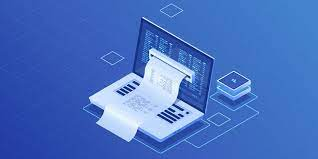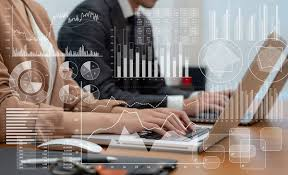As the world becomes forever changed by digital invention, accounting is no different. The traditional styles of fiscal operation are being bettered by more effective and streamlined processes.
How has fiscal operation evolved?
Accounting methods have evolved vastly. Accountants of history relied on paper-based methods, which were time- consuming and prone to mistakes. Still, with the rise of computer technology, the fiscal operation world began to change. Spreadsheets and accounting software revolutionised the way fiscal data was reused and analysed, making the task more accurate and effective.

Benefits of digital accounts
There are numerous benefits to businesses. Digital accounting offers real- time access to information, allowing decision- makers to make informed choices grounded on the most current data. This real- time visibility enables businesses to reply quickly to request changes and make adaptations to their fiscal strategies as needed. For advice from Tewkesbury Accountants, visit https://www.randall-payne.co.uk/services/accountancy/tewkesbury-accountants/
Secondly, digital accounts eliminates the need for paper records, reducing the threat of making errors and making it easier to organise and recoup fiscal information. It also saves precious office space that would else be cluttered by heaps of physical documents.
Incidentally, digital accounts enables businesses to automate repetitive tasks, similar to data entry and conciliation, freeing up precious time for accountants to concentrate on further strategic and value- added conditioning. This robotisation not only increases effectiveness but also reduces costs in the long run.

Digital tools and technologies for accounts
The digital age has brought forth a plethora of tools and technologies that have converted the accounting profession. One tool is accounting software that is cloud based. Cloud accounting offers a range of advantages, including remote access to fiscal data, flawless collaboration between organisation members, and automatic software updates. Cloud accounting software also ensures data security and disaster recovery, as data is stored securely.
Another arising technology that’s revolutionising the accounting field is artificial intelligence( AI). AI- powered software can perform complex tasks, similar to data analysis and pattern recognition, with unmatched speed and accuracy. This technology has the implicit ability to transfigure the role of accountants, allowing them to concentrate more on strategic decision- making and furnishing precious perceptivity to businesses.
Accounting automation
Automation is one of the crucial drivers of digital accounting. By automating repetitious and time- consuming tasks, businesses can significantly increase their effectiveness and productivity. For illustration, automated invoicing systems can greatly hasten the resolution of overdue payments, and indeed process payments automatically. This not only saves time but also reduces the threat of crimes and improves cash inflow operation.